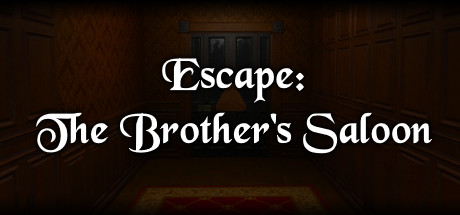
Escape: The Brother’s Saloon
In terms of escape games, Escape: The Brother’s Saloon is situated at the far end of the difficulty range. What makes it so hard are not the puzzles themselves, but the lack of hints. I spent around 7 hours running around like a headless chicken through the beautiful mansion, trying all permutations of various puzzles when an actual playthrough (when you know how to solve everything) takes around 30 minutes at a slow pace. Little did I know back then that I didn’t even have all the rooms unlocked (there is no map and their entrance is obscured by a wall) nor all the pieces required for a puzzle; there are cases in which there’s no indication in regards to when you’re supposed to even start an attempt to solve a puzzle.

Things are made unnecessarily difficult not only by the lack of hints or information about how many pieces you need to gather, but also by the fact that for certain puzzles, some items that are initially placed can also be picked up – you don’t know if their location is correct or if it’s just a trap that the developer set for you. If you’re anything like me, you would probably grab everything you can – only to realize later that you have no clue about how to solve the puzzle (bookshelf puzzle, I am talking about you!) or the ability to reset to the initial configuration (which in this case was correct).
After hours of frustration and giving up several times because I didn’t know how to continue, yet going back every time to try a different approach (or brute-forcing a few more permutations), I eventually managed to reach the end. The game didn’t stop there though: five new secret puzzles were unlocked, variations of some of the existing puzzles. And how nice they were! With the mansion fully unlocked and already knowing the idea behind each puzzle, all I had to do is to figure out how to solve them and look for clues – which in this case were available. I finally felt that the difficulty was appropriate, that THIS is what the game should have actually been all along.

The game is not at all bad and certainly doesn’t receive a negative critique. The puzzles are innovative and brilliant, with the remark that one might need some non-basic knowledge of chess, music and logic gates in order to solve them. The only real flaws of the game are that it doesn’t hold your hand and does not provide sufficient information in order for you to logically solve the puzzles. In its current state, for some puzzles it resorts to brute-forcing (more or less) developer’s solution instead of approaching them from a logical angle.